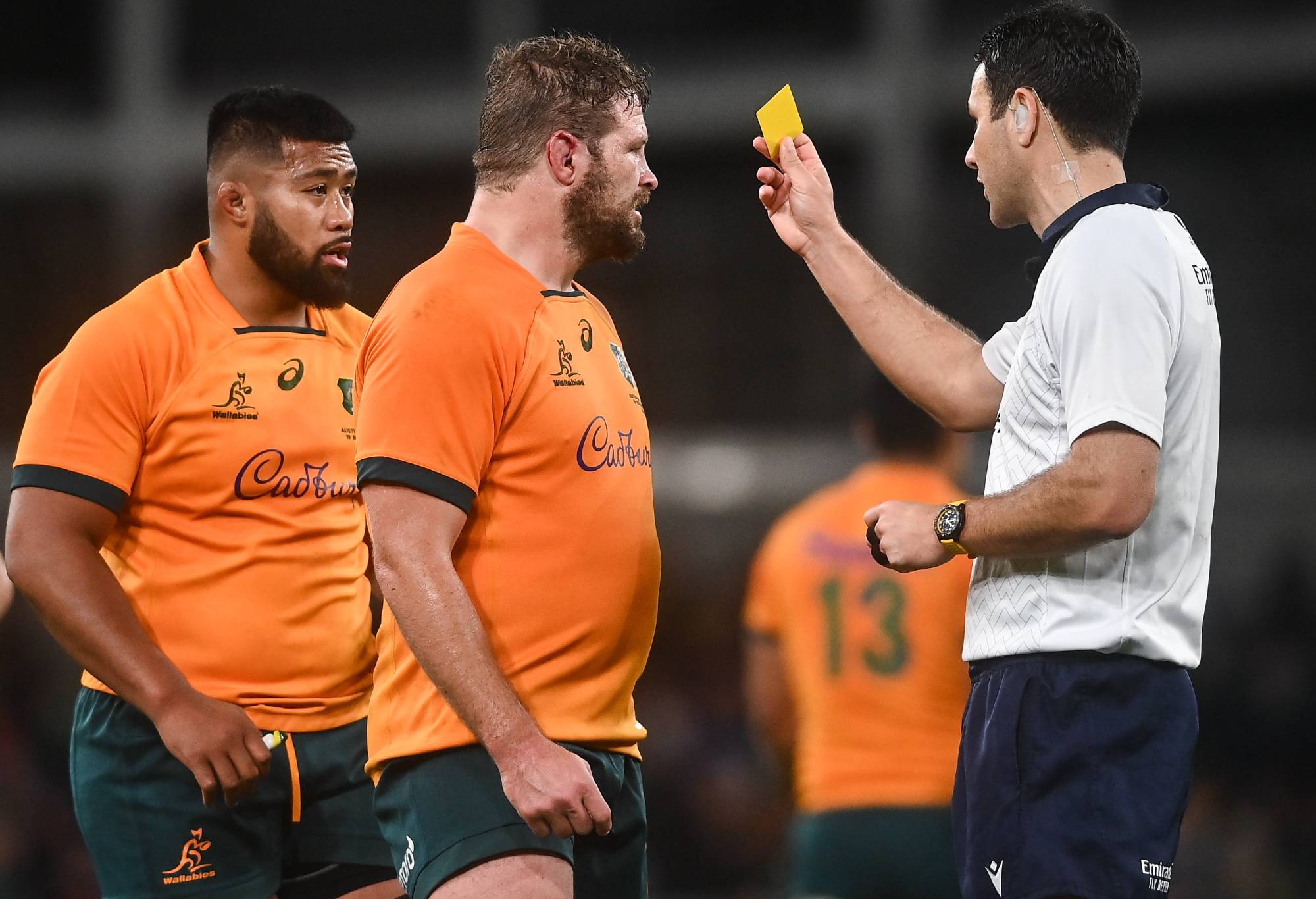Chaos cries for clarity. Rugby is not life or death, but it is win or lose, in or out, and in the end, stay on or be axed.
In a storm, we might shout “strike the royals” or “reef the mainsail,” or later, “point” or “reach” or “run” before “drop anchor” and “abandon ship.” We shout because we must. Brevity is our best companion.
No captain screams: “we need you all to show more discipline” to his sailors: it is too late for that. Calm control of the collective: earned and learned long ago in the shipyard and training voyages.
A sport I play still, tennis doubles, is best when one syllables are the only words accompanying behind-the-back signals; instincts reign, and no good partner tells you to take the edge off.
In firefights, officers give short orders, and shorter still as the enemy engages closer. “Medic” and “cover” and some form of “reload” become the creole of the fog of war, together with guttural shouts and oaths of fury. The lieutenant may slap a soldier if he freezes; he will not reason with him about discipline. He will show him what he wants with brutal words to push him over the lip of the foxhole. The same word Johnny Sexton used for the disgrace he felt Jaco Peyper was: often used.
A choir or orchestra practices discipline for months before the big performance; stopping bar by bar, but when the hot lights are on, a cupped left hand or a flat right hand are the immediate instructions. There is no time or chance for words of discipline. They are already disciplined, just as the good crew is, or an elite squadron of commandos.
Put a Test rugby side into a packed stadium after years of particular practice and months of devoted drills and weeks of dedicated planning: discipline either has or has not been achieved before kickoff.
The patterns of ruck cleaning and the order of arrival and the zones of carry and pass and the kick landing patches and the height of the throw and the manner of bind and the way in which a jumper is lifted and the elastic relationships in midfield and how quickly a reload occurs: these are the stuff dreamt by assistants.
The din of fifty thousand Pretorians baying for a marsupial braai, double 737 flyovers, a hectic DJ, and the rapid pace of modern Union play render any long discourse about self discipline irrelevant.

Folau Fainga’a of Australia, left, is shown a yellow card by referee Ben O’Keeffe during the Bank of Ireland Nations Series match between Ireland and Australia at the Aviva Stadium in Dublin. (Photo By David Fitzgerald/Sportsfile via Getty Images)
Also, if the battle is being lost physically and on the scoreboard, with effort and grunt in short supply, the last thing you want to shout at a team leaking soft tries is “discipline, boys!”
More specificity is needed: “lower” in the tackle or “no” to the jackal or “slide” to the centre or “back” to the pillar. “Discipline” is a straw hat word for prefects quieting the madding crowd; monks and hypnotists can stop swearing and smoking, but they don’t win the gainline.
What can be heard pitchside is staccato conduction bellowed: “fold” or “up” or “now” or “red” or “cross” or flat!” Sometimes an outside centre shouts at a wing for positioning on box kicks, but it is still one word.
A ten can tell his scrumhalf he is in the “pocket” for a drop goal or shout at his backline a code to know which kick he is delivering; hookers have far shorter calls now than before.
Yet, for many years, the D-word is the first, last, and middle answer given by Wallaby captains for losses. Today’s Wallabies are best known for being penalised more than any other top ten team: no matter where, who is reffing, and what the score is.
Thus, when the Wallabies were the main dish yet again in the great Pretoria braai, many looked at the visitors’ thirteen penalties to the hosts’ three as an unwelcome carry over from the Dave Rennie years.
Plenty of pundits pointed to the fact that Australia was on their heels, starved of possession, and dropping off 29 tackles, but the dreary fact is a two card Test is not that extraordinary in the last few years.
Being penalised a bit is a sign of good rugby because you are stopping tries and putting the attacking team in a dilemma (take a difficult three or a try to go to the corner). The best example might be the 2019 World Cup final when the Springboks held England out for dozens of phases on penalty advantage, but without any foul play. The try was never scored; the match was lost in that sequence.
Make sure of your place in the stands to see the British and Irish Lions in 2025. Tour packages on sale now at Wallabies Travel
You do not have to be the least penalised team to win a league or a tournament. But if penalties turn to cards (and they often do) it is a way of quickly finding the bottom or exit.
In Super Rugby Pacific, the Chiefs were one of the most penalised teams in the competition all year, yet arrived in the grand final with only one loss. The Crusaders were among the least pinged, and due to that, had eight fewer cards on the season than the Chiefs. In the last match of the season, that mattered. Habits die hard.
France and Ireland were polar opposites on ‘discipline’ but finished a clear one-two far above the rest, in this year’s Six Nations. Both smash rucks, but France is typically doing on defence, whilst Ireland is cleaning their attacking breakdowns.
But let us all agree: the Wallabies take infringement too far. Their rate inevitably leads to cards.
The list of total Wallaby penalties by Test (with cards in parentheses) has been (from most recent) has been double figured in 2022 and 2023: 14 (1), 13 (2), 13 (2), 12 (1), 16 (1), 11 (0), 15 (0), 16 (2), 11 (0), 13 (1), 16 (2), 13 (0), 16 (0), 10 (0), 16 (1), 13 (1). There were fifteen yellow cards and one red in 2022. But it is a long term issue.
In fact, the Wallabies stand alone as the team with the longest streak of double figure penalty ‘winners:’ 27. For a decade now, the Wallabies average about ten or more a game.
Thus, Eddie Jones says: “It’s all I’ve been thinking about.”
Fine, but then the prescription seems misplaced. When Wallaby backers speak of this trait, hell even when the players and coaches talk of it, they over use the word “discipline.” As in, ”we need more.”
Or “I’m proud of the boys. We were in for a long time. But we have to fix our discipline. We have to cut it out.”

(Photo by Jason McCawley/Getty Images)
That is the root of the problem.
Not the sentiment itself (of wanting to get on the good side of the ref). But the solution is not accurately described.
If you want power, dynamism and bully ball, the D word cannot be the swing thought shouted into rucks.
Rather, use “accuracy.”
Accurate violence, like a Muhammad Ali jab.
Accurate cleanouts, like a tractor uprooting a tree.
Accurate tackles, like a tiger taking down a water buffalo.
Accurate scrums, like a sumo grand champion.
Accurate aerial contests, like a block at the rim by Steven Adams.
F-word the D-Word; that mild striped blazer term.
Rather, accurately smash teams. ‘Smash’ is the muscular verb Eddie Jones has used to describe his team’s plan. Grab comes later; first, smash.
Who are the Aussie smashers in this group? Do you want them milder or wilder?
Look, there is a certain amount of discipline in being accurate. But the connotation is different.
One asks a player in the fog of war, in the eye of the storm, in the limelight, at matchpoint, to hold back, to take a bit off, to be mild.
The other says: seek and destroy the target. Accurately. But destroy it.
As ‘Lord’ Laurie Fisher appropriately noted on The Roar podcast, you can be a lot more accurate when you are closer. ‘Proximity’ might be better than ‘discipline’ as a mantra.
Being hard on the ball or the ruck is mostly about hitting the correct body part in a supremely dominant way.
Nobody ever accused the Crusaders or the Springboks of being soft; they are hard as can be.
But the accuracy they preach and practice — with sober repetitive discipline — at scrum and tackle and ruck and contest, shows up on game day without need to admonish circumspection.
When the referee warns the ‘Saders and Bok captains of cards coming, they don’t carry a message of discipline back to the red zone huddle. They either say “one more” (because early tryline pressure is survived by using your basketball fouls) or “no more” (if the ref has one hand in his pocket) and then remind everyone to “smash them” and “be first” and “dominate.”
At the moment, the Wallabies have the messaging backwards: starting wild and backing off when behind.
Post-match speeches discussing a lack of discipline are not, as the captain may intend, critiques of that day or that game. Instead, it is a direct diatribe on how dismal months of coaching may have been.
What are they teaching in the long camps? Do that well and short, sharp directives from game managers and senior leaders will suffice.
At this point, it feels like the coaches and captains are nagging the players who have turned off their ears. Some Wallabies have seen three or even four coaches come and go, all yapping about discipline.
The University of Denver published a study on nagging in 2010 in the Journal of Family Psychology finding evidence that couples who minimize nagging stand a better chance of finding happiness. “Nagging is an enemy of love, if allowed to persist.”
Nagging about ill-discipline and inspiring hesitancy instead of affirming powerful and accurate ruck destruction: the enemy of winning.






























































































